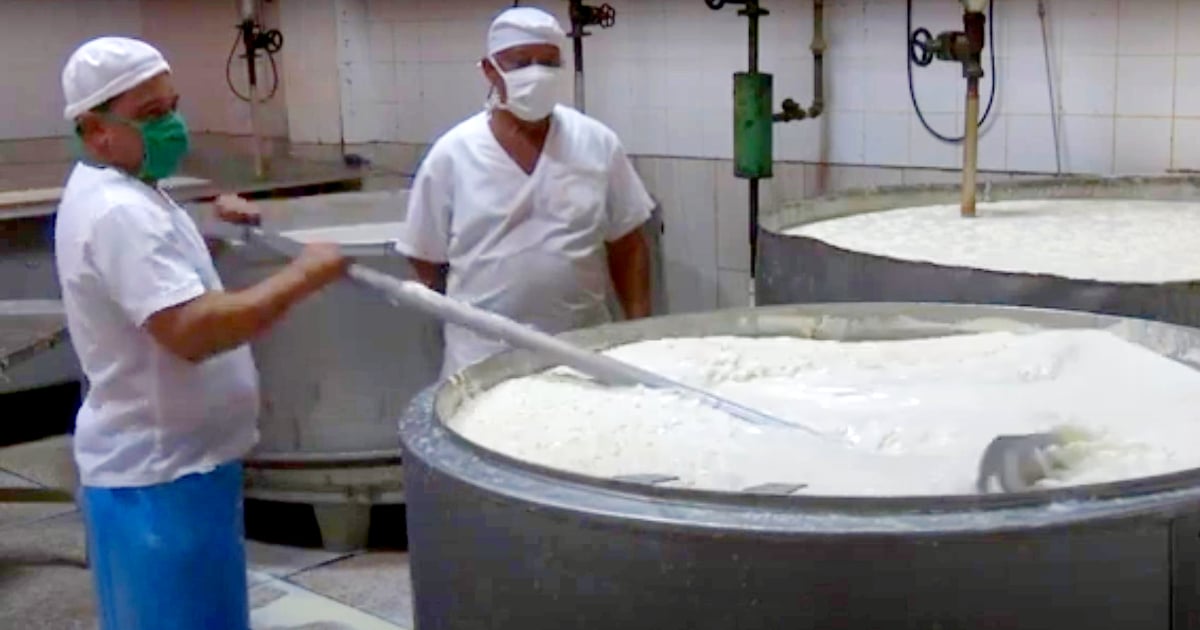
Related videos:
The Ministry of Domestic Trade of Cuba (MINCIN) announced that it will not be able to guarantee powdered milk for all children in the regulated family basket for the month of December.
According to the official statement, as an alternative, children in certain provinces will receive one kilogram of chocolate mix for breakfast, a measure that has sparked strong criticism and questions regarding the government's priorities and its ability to address the basic needs of the population.
Milk for a few, chocolate mix for others
The MINCIN explained that children aged 0 to 2 years will have guaranteed access to milk until January 10, 2025, while in some provinces such as Mayabeque, Cienfuegos, Sancti Spíritus, Camagüey, and Las Tunas, fluid milk will be provided to children between 6 months and 1 year old.
Fresh milk will be distributed to children aged 2 to 6 in provinces such as Artemisa, Matanzas, Cienfuegos, and Granma. However, in the rest of the country, where powdered milk has traditionally been provided, children will receive a chocolate mix, a solution that highlights the extent of the food crisis affecting the island.
This announcement comes amid a constant deterioration in the distribution of basic goods in Cuba. Previous reports indicate that powdered milk, an essential food item, has become inaccessible for many families due to its high price in the informal market and its scarcity in state networks.
A recent article published by CiberCuba indicated that the price of a kilogram of powdered milk in the informal market can reach up to 5,000 pesos (more than double the minimum wage), a luxury beyond the reach of most Cuban households.
Subsidies eliminated and an increasingly empty ration book
The current crisis is not limited to milk. The Cuban government has recently removed subsidies for several basic goods, arguing that the country is facing extreme economic challenges.
This decision has deepened public discontent. In provinces such as Artemisa and Villa Clara, citizens have reported long lines and delays in the delivery of regulated products such as rice and oil.
The removal of subsidies, rising prices, and insufficient distribution have been ongoing issues in recent months. Since the modification of the rationing program, many families rely almost exclusively on regulated products for their survival, making measures such as replacing powdered milk with a chocolate drink feel like a mockery of their needs.
Reactions of the population
The reactions came swiftly. On social media, many Cubans expressed their outrage and frustration.
"They can't even guarantee powdered milk for the children, but they always have resources for political and propaganda events," wrote a user in reference to the recent March of the Fighting People.
Another person remarked, "Exchanging milk for chocolate is not a solution; it is a confession that they have no way to address the underlying issues."
Parents of young children, in particular, have been the most affected. Milk is a crucial food in the diets of minors, and replacing it with chocolate substitutes raises concerns about the nutritional value of this alternative.
International organizations have repeatedly warned about the impact of malnutrition on Cuban children, a situation that is worsening increasingly.
A problem that goes beyond milk
The statement from MINCIN also addresses the distribution of other basic products such as rice, oil, chicken, and grains.
Although it is assured that vulnerable groups such as children and pregnant women will be prioritized, deliveries are far from meeting the needs of the population.
In provinces affected by hurricanes Oscar and Rafael, the additional aid consists of small amounts of rice, peas, and oil; however, these deliveries are insufficient given the actual needs.
Context of a prolonged crisis
The scarcity of milk in the basic basket is not a new phenomenon in Cuba.
In Matanzas, the frequent power outages recorded in 2024 compromised the preservation of liquid milk, affecting its distribution to children under six years old. According to reports, the electrical interruptions also impacted production, leaving families without access to this essential food.
In Guantánamo, the situation reached an extreme in August 2023 when children aged between seven and thirteen began receiving syrup as a substitute for milk, a decision that sparked strong criticism due to its lack of nutritional value. Such measures not only reflect the government's inability to ensure basic supplies but also the deterioration of food conditions in the country's most vulnerable areas.
The government has sought solutions on various fronts, such as requesting assistance from the UN in February 2024 to address the shortage of milk and integrating small and medium enterprises into the supply of dairy products. However, these measures have proven to be insufficient.
While the regime promotes its productive capacity "thanks to Fidel," evidence indicates that food shortages persist and disproportionately affect the most disadvantaged sectors.
A crisis that hits the most vulnerable
The food crisis in Cuba continues to deepen, particularly impacting children. A recent report highlighted how families are facing the reality that their children receive milk only once every three days, at best.
Such restrictions have had a significant impact on child health and development, as well as increasing discontent towards government policies.
In June, a report published by the United Nations Children's Fund (UNICEF) included Cuba in its assessment of child nutrition and revealed that 9% of children in Cuba suffer from severe food insecurity, a condition in which minors have access to a maximum of only two out of eight essential foods needed for a healthy life.
The recent announcement from MINCIN regarding the basic basket not only highlights the Cuban government's inability to ensure essential products but also reflects the lack of an effective plan to address the basic needs of the population.
While the regime continues to blame the U.S. embargo for the crisis, Cubans are confronting a reality marked by scarcity, hunger, and uncertainty.
Filed under: